
The Feast Beneath © Jan L. Richardson
It took a couple of days to get here, but I’ve made my way back from my sojourn at The Grünewald Guild. My travels home included hitching a ride from the Guild with a friend who lives near Seattle. En route we stopped by her sister’s home and had a mid-afternoon meal that involved homemade tortillas and salsa, courtesy of her in-laws who were visiting from Texas, yum. Midway through the meal we were joined by a gaggle of girls—my friend’s nieces and their cohorts. One of the girls was sporting a decorative Band-Aid, and another commented on how the Band-Aid had migrated from her lower arm to her upper arm. Another girl said the Band-aid was for an imaginary wound. The girl next to me, all of ten years old, dryly observed, “Yeah, those things hurt.”
I’m not sure when it happened, probably because it evolved so slowly, but somewhere in my adulthood I began to discern that motherhood was not part of my calling in life. When it comes to children, I’ve worked instead to cultivate being The Odd Aunt, and I am navigating the delights and challenges that come in sharing a life with a man who has a teenage son. Still, I get a twinge once in a while, like when I sat at that table of splendid girls on my way home from the Guild, and I wonder for a moment what the path of parenthood might have been like.
Had I become a mother, I hope I would have shared some of the qualities of the one we meet in this week’s gospel lection, Matthew 15.(10-20), 21-28. This Canaanite woman, whose name has gone unrecorded, offers an intriguing contrast to last week’s gospel reading. Where the storm-tossed disciples found it difficult to recognize and know Jesus, the Canaanite mother is replete with the gift of sight. Like so many women in the gospels, she recognizes Jesus, sees him, knows full well what he can do.
This Canaanite mother calls upon Jesus in his role as the Son of David to help her daughter, whom she says is tormented by a demon. For all her fervor, Jesus meets her shouting with silence. She has stirred up the disciples, however. As on previous occasions, they petition Jesus to send away someone who is making them uncomfortable. Yet unlike the instances involving children and hungry people, where Jesus stepped in to take action, he assumes here a stance of indifference. When Jesus finally speaks, it is to claim that he has been sent only to the lost sheep of the house of Israel.
It is not enough for this desperate mother. She kneels before him, saying simply, “Lord, help me.”
To the woman’s plea, Jesus responds, “It is not fair to take the children’s food and throw it to the dogs.” In the absence of hearing Jesus’ inflection and seeing his face, it’s difficult to discern how he intends these words. Is he weary by this point and short of temper? Is his human side feeling overwhelmed by the work that yet remains for him within the house of Israel, let alone the world beyond this house? Or does he know full well what this mother is made of, and chooses to use this as a teaching moment and an opportunity to match wits with a worthy opponent?
Whatever Jesus’ intent, it’s hard to avoid hearing the insult that lurks within his words. The woman, however, refuses to be dissuaded. Rather than hearing Jesus’ response as a barrier, she uses it as a doorway.
The woman is kneeling before Jesus, but she is not merely a supplicant. She is poised to wrestle a blessing from him. She is in a stance designed to disarm Jesus, to sweep him from his feet. She is in a posture from which she can look for crumbs and, from them, make a feast. She knows there’s one here somewhere for her and for her daughter.
She knows that Jesus knows this, too. She knows that Jesus carries abundance with him. It hasn’t been so long since he presided at the feeding of more than five thousand women, children, and men. She can smell the feast on him, the scent of the crumbs that cling to him.
“Yes, Lord,” the Canaanite woman responds to Jesus, “yet even the dogs eat the crumbs that fall from their masters’ table.”
This woman knows there is a whole other world beneath the table. She recognizes that beyond the tabletop of privilege, there is yet a place for her and the daughter whom she is desperate to save. Taking what lies beneath the table, the woman makes a feast. And in that place, the unnamed woman becomes a celebrant. She leaves with the blessing she has wrestled from Jesus; she leaves with a healing for her daughter.
Though I may not be a mother, the encounter between the Canaanite woman and Jesus challenges me to ponder what I’m feeling fierce about in my own life, and to what lengths I’m willing to go in order to save and preserve what lies within my care. How about you? What are you feeling fierce about in your own life? For what are you willing to cry out and challenge Jesus? Do you believe he can stretch himself to help you? What is the blessing that you need to wrestle from him?
Peace to you as you search for what will sustain you and all that is within your care.
[To use the “Feast Beneath” image, please visit this page at janrichardsonimages.com. Your use of janrichardsonimages.com helps make the ministry of The Painted Prayerbook possible. Thank you!]


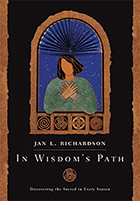
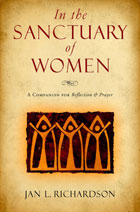

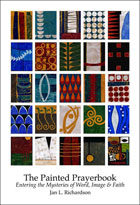
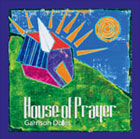
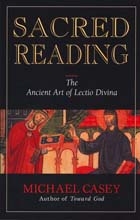
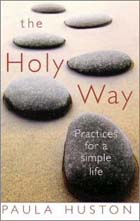
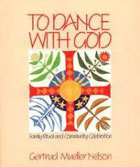
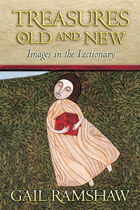
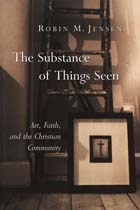
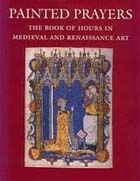
August 16, 2008 at 8:05 AM |
A wonderful reflection on what I would consider to be a very difficult reading. You hit the nail on the head: it’s hard to know Jesus’ intent without knowing his inflection. These words come across as a slap in the face; they surprise us with their hard-heartedness. And yet, perhaps this is one more example of how the Divine acts in ways we don’t expect. Jesus’ hesitant (ambivalent?) response is not what we want to see in a Savior. As least I don’t; I want to see compassion and love, healing and restoration. But this story provides a Savior who challenges and needs to be challenged. This is something I understand because the people I love and admire most provide me with the most challenges and they are willing to be challenged themselves.
Thanks for the stimulating reflection.
L
August 16, 2008 at 9:20 AM |
Thanks for the wonderful images, verbal and visual. I struggle regularly to approach life and ministry from a celebration of God’s abundance rather than my perceived scarcity. The feast under the table will stick with me.
August 16, 2008 at 10:57 AM |
you have such great insight…i’m so glad you share it with the rest of us. i was completely taken with this line “she could smell the feast on him”. there is something so primal about that line – the earthiness of jesus and this strong woman…. thanks for allowing me to see the story of Jacob here….now i have a woman wrestling with Jesus – awesome picture!
Another line that resonates – “taking what lies beneath the table the woman makes a feast”…..wow! – am i living with the confidence & determination of this woman? am i living out of abundance? you have given me much to ponder, as usual….
thanks,
roberta
August 18, 2008 at 12:09 PM |
sometimes faith is a key, you turn it and there it is. sometimes faith is a safe that needs to be cracked. the hard words of Jesus helped to expose the desperation of this woman and in turn our own desperation. O, Lord make me that desperate for you and what you have for me.
thanks for the reminder
Greg